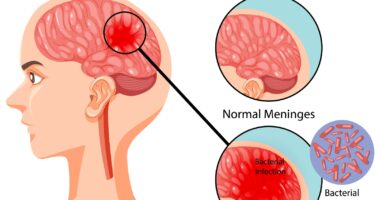In the USA, several research centres are dedicated to advancing the understanding, treatment, and prevention of HIV/AIDS. These research centres collaborate with healthcare institutions, universities, government agencies, and non-profit organizations to conduct groundbreaking research, clinical trials, and innovative initiatives aimed at combating HIV/AIDS. Here are some prominent research centres for HIV/AIDS in the USA:

1. National Institutes of Health (NIH) – National Institute of Allergy and Infectious Diseases (NIAID): The NIH, particularly the NIAID, is at the forefront of HIV/AIDS research in the USA. It supports numerous research programmes, clinical trials, and collaborations with scientists and institutions worldwide to develop effective HIV prevention strategies, treatments, and vaccines.
2. Centers for Disease Control and Prevention (CDC) – Division of HIV/AIDS Prevention (DHAP): The CDC’s DHAP is responsible for monitoring HIV/AIDS trends, researching prevention methods, implementing HIV testing and prevention programmes, and supporting community-based initiatives to reduce HIV transmission and improve care for people living with HIV.
3. HIV Vaccine Trials Network (HVTN): The HVTN is a global collaboration of researchers, scientists, and institutions dedicated to developing safe and effective HIV vaccines. It conducts clinical trials to evaluate candidate vaccines and explore new approaches to HIV prevention through vaccine research.
4. Fenway Institute – The Fenway Institute’s Center for Population Research in LGBT Health: The Fenway Institute is a leading centre for research, education, and advocacy in LGBT (Lesbian, Gay, Bisexual, Transgender) health. Its Centre for Population Research focuses on HIV/AIDS research, particularly among LGBT communities, and addresses disparities in HIV prevention, care, and treatment.
5. Gladstone Institutes – Gladstone Center for HIV Cure Research: Based in San Francisco, the Gladstone Center for HIV Cure Research is dedicated to finding a cure for HIV/AIDS through innovative scientific research. It explores novel approaches to HIV eradication, latency reversal, immune-based therapies, and gene editing technologies.

6. University of California, San Francisco (UCSF) – AIDS Research Institute (ARI): UCSF’s ARI is a multidisciplinary research centre focused on HIV/AIDS research, education, and patient care. It conducts basic science research, clinical trials, epidemiological studies, and behavioural research to address various aspects of HIV prevention, treatment, and care.
7. Emory University – Center for AIDS Research (CFAR): Emory’s CFAR is a collaborative research centre that brings together scientists, clinicians, and community partners to advance HIV/AIDS research. It researches HIV pathogenesis, prevention strategies, clinical outcomes, and interventions aimed at reducing HIV transmission and improving patient outcomes.
8. University of Washington – International Clinical Research Center (ICRC): The ICRC at the University of Washington conducts global HIV/AIDS research, including clinical trials, epidemiological studies, and implementation science research in collaboration with international partners. It focuses on HIV prevention, treatment adherence, HIV/TB co-infection, and HIV vaccine development.
9. Johns Hopkins University – Center for AIDS Research (CFAR): Johns Hopkins’ CFAR is a multidisciplinary research centre that conducts basic, translational, and clinical research on HIV/AIDS. It focuses on understanding HIV pathogenesis, developing novel therapies, studying HIV-related comorbidities, and addressing disparities in HIV care and outcomes.
10. Fred Hutchinson Cancer Research Center – HIV Vaccine Trials Unit (HVTU): The Fred Hutchinson Cancer Research Center’s HVTU is actively involved in HIV vaccine research, conducting clinical trials to evaluate vaccine candidates, immune responses, and vaccine efficacy. It collaborates with other research centres, pharmaceutical companies, and government agencies in the pursuit of an effective HIV vaccine.
These research centres, among others across the USA, play a crucial role in advancing scientific knowledge, developing innovative treatments and prevention strategies, and ultimately working towards the goal of ending the HIV/AIDS epidemic.









